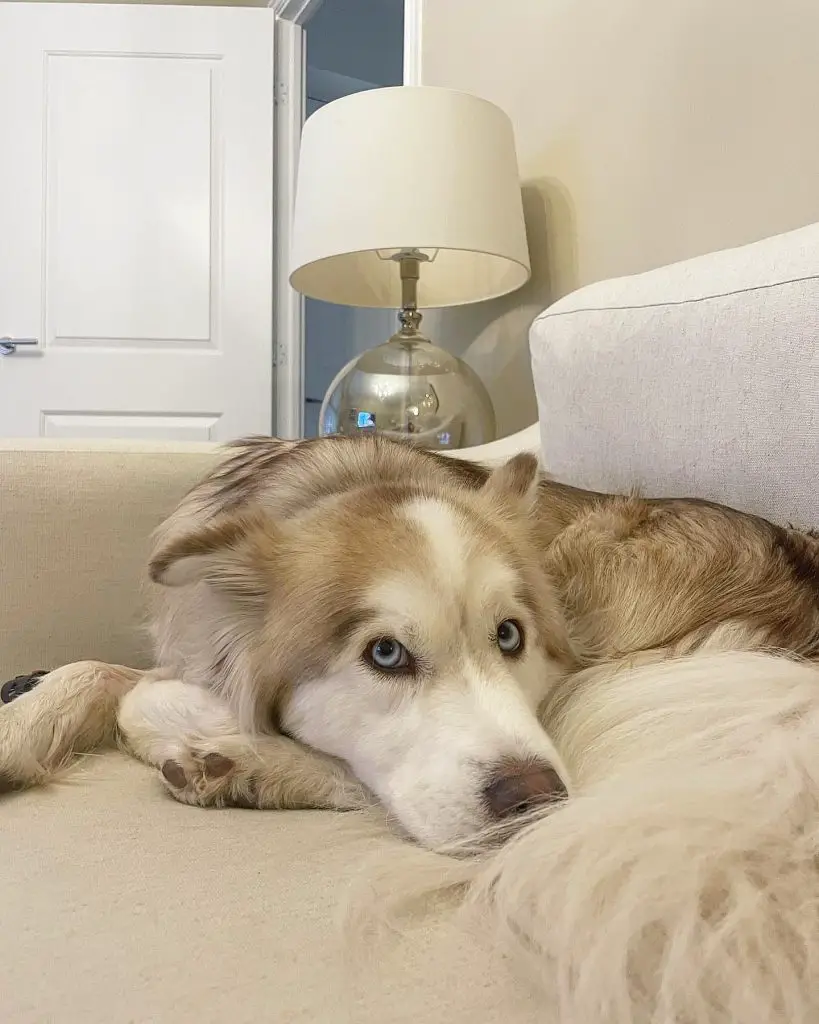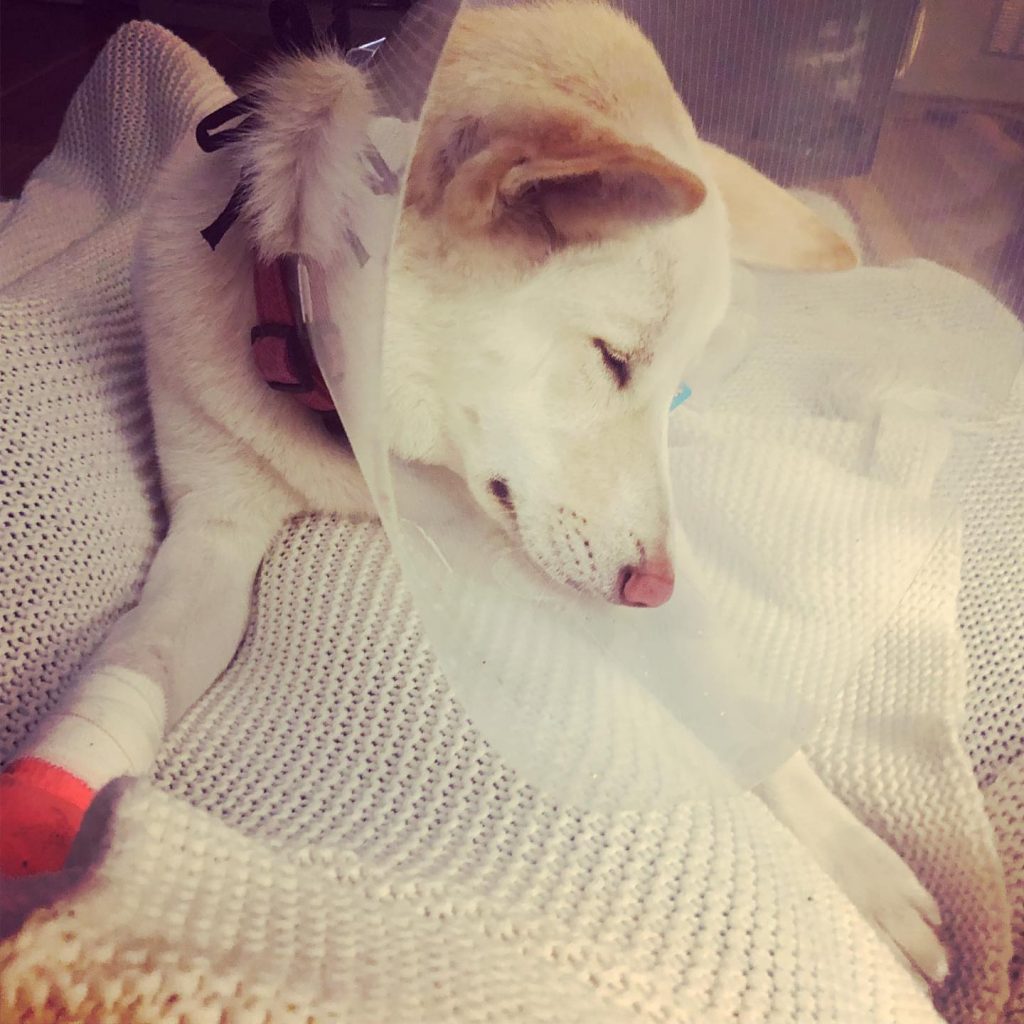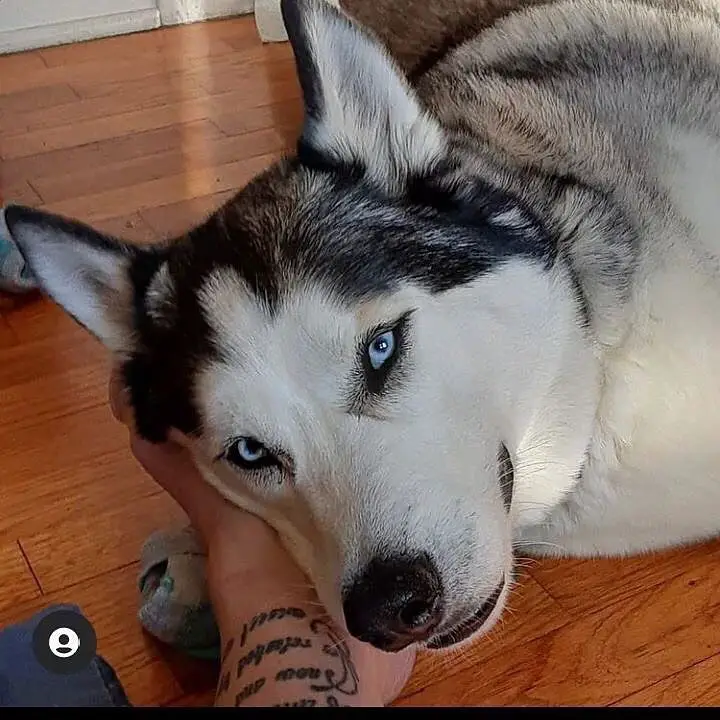There are a few reasons your Husky might have diarrhea, including eating something that doesn’t agree with them, an infection, or a more serious health condition. If your dog has diarrhea for more than a day or two, it’s important to take them to the vet to rule out any potential problems.

What causes diarrhea in dogs?
We have listed the most common causes of diarrhea in dogs below:
- Consuming rotten dog food or garbage food
- Stress and anxiety
- Change in diet or treats
- Ingestion of foreign objects, such as toys, bones, and fabric
- Consuming poisons or toxins
- Antibiotics and other medications
- Intestinal parasite: roundworms and hookworms; whipworms; Coccidia or Giardia
- Viral infections like parvovirus, distemper or coronavirus
- Salmonella and other bacterial infections
- Inflammatory bowel disease
- Pancreatitis
- Colitis
- Kidney disease or liver disease
- Intestinal cancer
You may like: Why does my dog have diarrhea?
Unsuitable foods.
Eating something that doesn’t agree with them is one of the most common reasons for dogs diarrhea. If your Husky ate something they shouldn’t have, or if they overate of something, it can cause stomach upset and diarrhea. This is usually not serious and will resolve on its own within a day or two. However, if your dog seems to be in pain or is vomiting and having diarrhea, it’s important to take them to the vet right away, as this could be a more severe problem.

Infections and Bacterial reasions.
Infections, both viral and bacterial, are another common cause of diarrhea in dogs. If your Husky has been around other dogs that are sick or have been in an area where there has been a lot of dog traffic, they may have picked up an infection. Signs of an infection include diarrhea, vomiting, weight loss, and lack of energy. If you think your Husky may have an infection, it’s important to take them to the vet to be properly diagnosed and treated.
You may like: Can chicken broth cause diarrhea in dogs?
Health conditions.
Some more serious health conditions can cause diarrhea in dogs, such as pancreatitis, liver disease, and cancer. If your Husky has severe or persistent diarrhea, it’s important to take them to the vet so they can rule out any of these potential problems. Treatment for these conditions will vary depending on the underlying cause but may include medication, special diets, or surgery.

When to visit the vet?
It’s normal for your dog to have diarrhea once and then be able to behave normally. You can watch your dog’s stool movements to see if it improves. Your vet should be called if your dog experiences more than two episodes of diarrhea.
Your pooch may be having difficulty passing a stool and only giving watery diarrhea. This could indicate that they have ingested a toy or other foreign object. This is a serious condition and should be treated immediately by a veterinarian.
A persistent bout of diarrhea for a short period can indicate a serious health problem, significantly if your furry friend has compromised immunity or is very old. Parvovirus infections can be life-threatening and contagious. If your dog is suffering from persistent diarrhea or chronic diarrhea, contact your veterinarian immediately.
Your vet should see your dog if they are experiencing other symptoms than diarrhea. To schedule an appointment for your dog’s vet if your dog displays any of these symptoms, it’s essential to veterinary attention.
- Weakness
- Stools with blood
- Vomiting
- Drooling is a rare phenomenon
- Insufficient appetite
- Signs of dehydration include dry and swollen eyes, dry nose, or dry, sticky gums.
Your veterinarian should be contacted if your dog shows any signs or symptoms. If your pet is experiencing any symptoms, you can have it examined by your vet.
You may like: how to get rid of fleas on dogs?
How to stop diarrhea In Siberian Husky.
-Assess your dog for signs of illness. A rectal thermometer is inserted into the anus to measure your dog’s temperature. Your vet should be notified if your pet exhibits symptoms such as fever exceeding 101 degrees Fahrenheit, lethargy, and vomiting.
-Check your dogs stool to see if there are any signs of worms. Another sign of worms is anal licking or scooting his bum on the carpet due to itching. Ask your veterinarian to prescribe a worm medication if you suspect that worms may be present.
-Recall whether you have recently changed the dogs diet or given any new medication. Dogs’ digestive systems can be difficult to adjust to sudden changes, and some human medications may cause dog diarrhea.
-Always ensure you have enough water. Dehydration is dangerous during dog diarrhea. Make sure to check that she is still drinking.
-Offer a small bland diet of cooked rice, cottage cheese, baked potato, and boiled chicken. It takes time for your dog to get used to eating solid food again.
-Inspect the dog’s bed area every night. To prevent any future exposure to bacteria and worms, keeping the dog’s bedding and surroundings clean is important.
-If your dog develops additional symptoms or diarrhea, call your veterinarian immediately.

Conclusion.
Diarrhea in Husky is a common problem. Many factors can lead to this condition, such as dietary indiscretion, parasites, viral infections, etc. If your Husky has diarrhea, it’s important to take him to the vet to rule out any serious causes. There are many ways to treat diarrhea in huskies, so work with your vet to find the best way to help your furry friend feel better.





